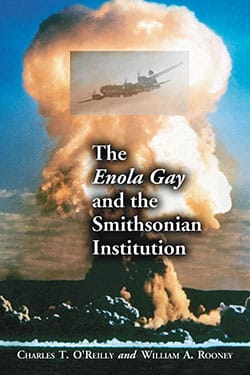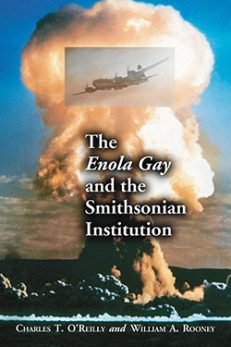The Enola Gay and the Smithsonian Institution
$45.00
In stock
About the Book
On August 6, 1945, the B-29 Enola Gay dropped an atomic bomb on Hiroshima, Japan, which ushered on the end of World War II. For the 50th anniversary of this major event in world history, the National Air and Space Museum of the Smithsonian Institution produced an exhibit. A controversy erupted, however, over the exhibit’s historical authenticity. Veterans, for example, complained that the museum displayed a misrepresented version of history.
After concisely covering the background of the Enola Gay and its mission, this study focuses on the controversy surrounding the museum exhibit. Issues covered include casualty figures, ethical questions, and political correctness, among others. The viewpoints of such groups as museum personnel, exhibit organizers, veterans, and historians are covered. Appendices offer information on content analysis of the National Air and Space Museum exhibit script, non-museum materials that were intended to complement the exhibit script, and the importance of full disclosure in research.
About the Author(s)
Bibliographic Details
Charles T. O’Reilly and William A. Rooney
Format: softcover (6 x 9)
Pages: 255
Bibliographic Info: appendices, notes, bibliography, index
Copyright Date: 2005
pISBN: 978-0-7864-2008-7
eISBN: 978-0-7864-8400-3
Imprint: McFarland
Table of Contents
Acknowledgments vi
Preface 1
1. The NASM Plans an Exhibit 5
2. Why the Battle of the Enola Gay? 23
3. Was Japan Ready to Surrender? 43
4. Unconditional Surrender 59
5. Was Germany an A-Bomb Target? 67
6. The Question of Casualties 87
7. Where Did the 500,000 Come From? 114
8. Defending the Exhibit 133
9. The Moral Question 159
10. Epilogue 167
Appendix A: Is Speculation History? 189
Appendix B: The “Tiger Team” Report 197
Appendix C: Why Not Full Disclosure? 200
Notes 205
Bibliography 237
Index 245
Book Reviews & Awards
“outstanding, well-argued critique…thorough…meticulous…excellent”—Air Power History.





